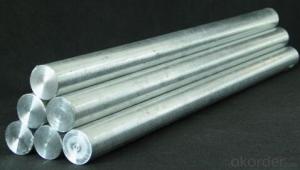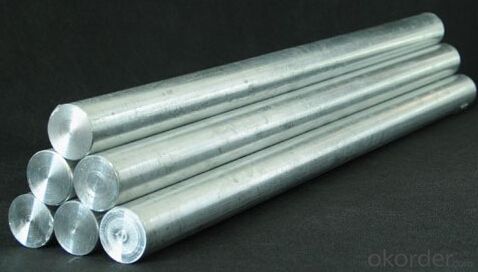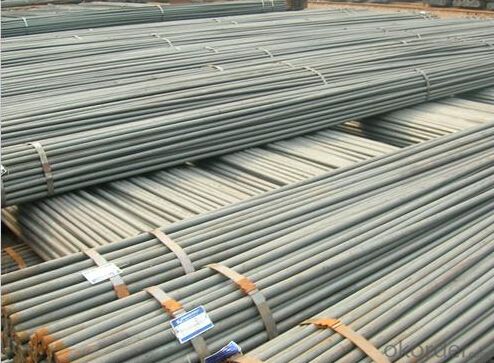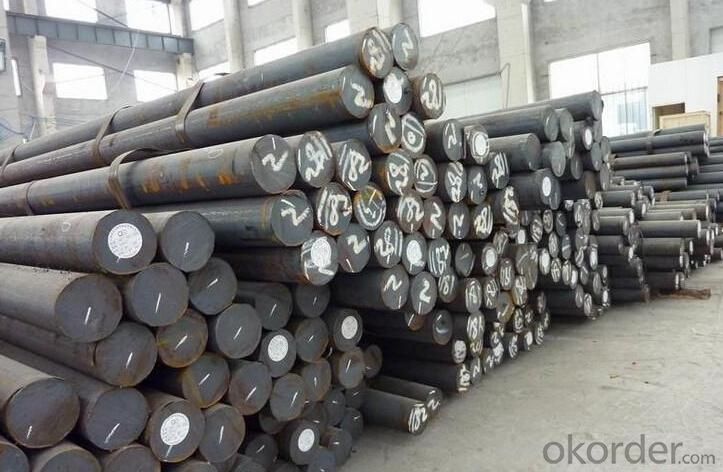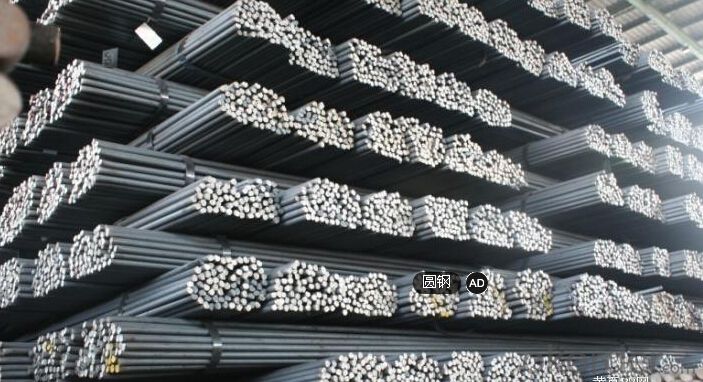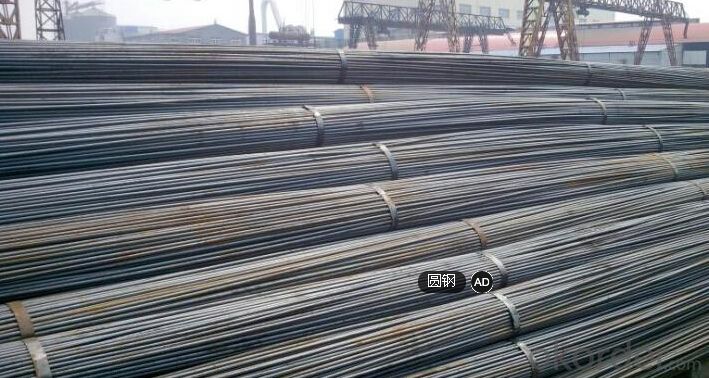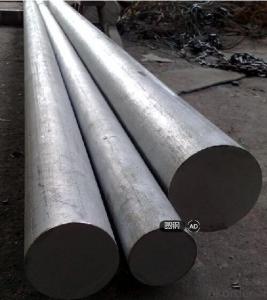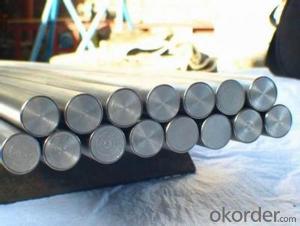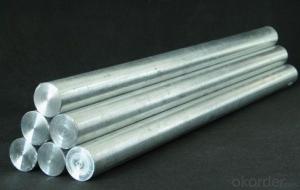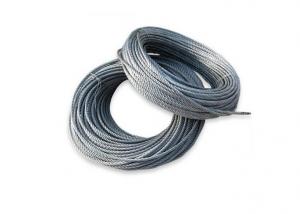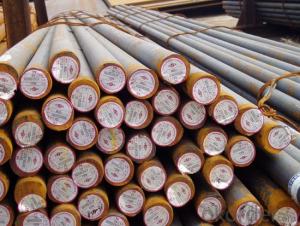TP410 Stainless Steel Bar /TP 410 Stainless Steel Rod
- Loading Port:
- Qingdao
- Payment Terms:
- TT OR LC
- Min Order Qty:
- 5 m.t.
- Supply Capability:
- 100000 m.t./month
OKorder Service Pledge
Quality Product, Order Online Tracking, Timely Delivery
OKorder Financial Service
Credit Rating, Credit Services, Credit Purchasing
You Might Also Like
Specification
Type:
Carbon Steel,Spring Steel,Bearing Steel,Gear Steel,Deformed Steel,Stainless Steel,Alloy Steel
Shape:
Steel Coil,Steel Sheet,Steel Wire Rod,Steel Flat Bar,Steel Square Bar,Steel Angle,Steel Round Bar,Steel Billets
Technique:
Hot Rolled,Cold Rolled,Cold Drawn,ERW,Forged,Saw,Extruded,EFW,Spring
Surface Treatment:
Galvanized,Coated,Copper Coated,Color Coated,Oiled,Dry,Chromed Passivation,Polished,Bright,Black,PVDF Coated
Certification:
ISO,SGS,BV,IBR,RoHS,CE,API,BSI,UL
Thickness:
3-800mm
Width:
3-800mm
Length:
6-12m
Outer Diameter:
3-800mm
Net Weight:
50kg
Packaging:
seaworthy packaging
TP410 Stainless Steel Bar /TP 410 Stainless Steel Rod
Detailed Information of TP410 Stainless Steel Bar /TP 410 Stainless Steel Rod
| Name | Steel Round Bar |
| Shape | Round Bar/Square Bar/Flat Bar/Plate/Wire |
| Standard | GB/ASTM/SAE/AISI/DIN/JIS/EN/BS |
| Surface Treatment: | Black/Peeling/Polished/Machined |
| Delivery Condition: | Hot Rolled or Forged/Peeled or Black Surface |
| Test | SGS/UT 100% Elements Testing |
| Certificate: | ISO/Mill Certificate |
| Service: | 24 hours online service / |
| more than 20 years trading and manufacture | |
| Quality Assurance: | the third party inspection, such as SGS, BV, TUV…etc. is acceptable |
| Packaging Details: | Seaworthy Packaging or as per customer's packing instruction |
Product Overviews of TP410 Stainless Steel Bar /TP 410 Stainless Steel Rod
| Product Name | Typical Grades | Diameter(mm) | Standard Adopted |
| Carbon Steel | 20 (1020/S20C/C22) | ||
| 40 (1040/S40C/C40) | Ø16-Ø300 | ||
| 45 (1045/S45C/C45) | |||
| Bearing Steel | GCr9 (51100/SUJ1) | ||
| GCr15 (52100/SUJ2/100Gr6) | Ø12-Ø250 | ||
| GCr9SiMn (A485-Gr.1/SUJ3) | GB/SAE/ | ||
| Cr-Mo Steel | 20Cr (5120/SCr420H/20Cr4) | JIS/DIN | |
| 40Cr (5140/SCr440/41Cr4) | Ø12-Ø250 | ||
| 42CrMo(4140/SCM440/42CrMo4) | |||
| Gear Steel | 20CrNiMo | ||
| 20CrMn(5115/SMnC420/20MnCr5) | Ø16-Ø600 | ||
| 20CrNiMo(8620/SNCM220/20CrMiMo2) |
Company Introduction of TP410 Stainless Steel Bar /TP 410 Stainless Steel Rod
CNBM International Corporation is the most import and export platform of CNBM group(China National Building Material Group Corporation) ,which is a state-owned enterprise, ranked in 270th of Fortune Global 500 in 2015.
With its advantages, CNBM International are mainly concentrate on Cement, Glass, Iron and Steel, Ceramics industries and devotes herself for supplying high quality series of refractories as well as technical consultancies and logistics solution.
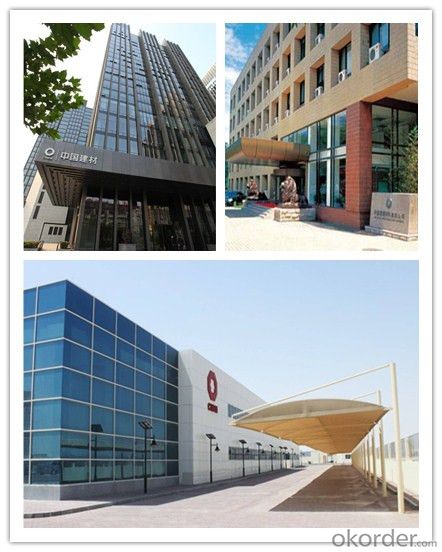
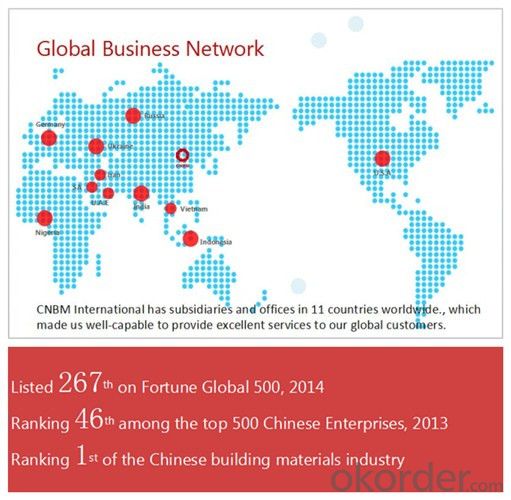
| After-sale service | l CNBM provides the services and support you need for every step of our cooperation. We’re the business partners you can trust; you can relax and get on with doing business. |
| l For any problem, please kindly contact us at any your convenient time, we’ll reply you in our first priority within 24 hours | |
| Advantages | l Industry experience over 20 years. |
| l Shipment of goods -More than 70 countries worldwide. | |
| l The most convenient transport and prompt delivery. | |
| l Competitive price with best service. | |
| l High technical production line with top quality products. | |
| l High reputation based on best quality products. | |
Packaging & Delivery of TP410 Stainless Steel Bar /TP 410 Stainless Steel Rod
| Packaging Detail | Sea worthy packing /as per customer's packing instruction |
| Delivery Detail | 15 ~ 40 days after receiving the deposit |
Products Show
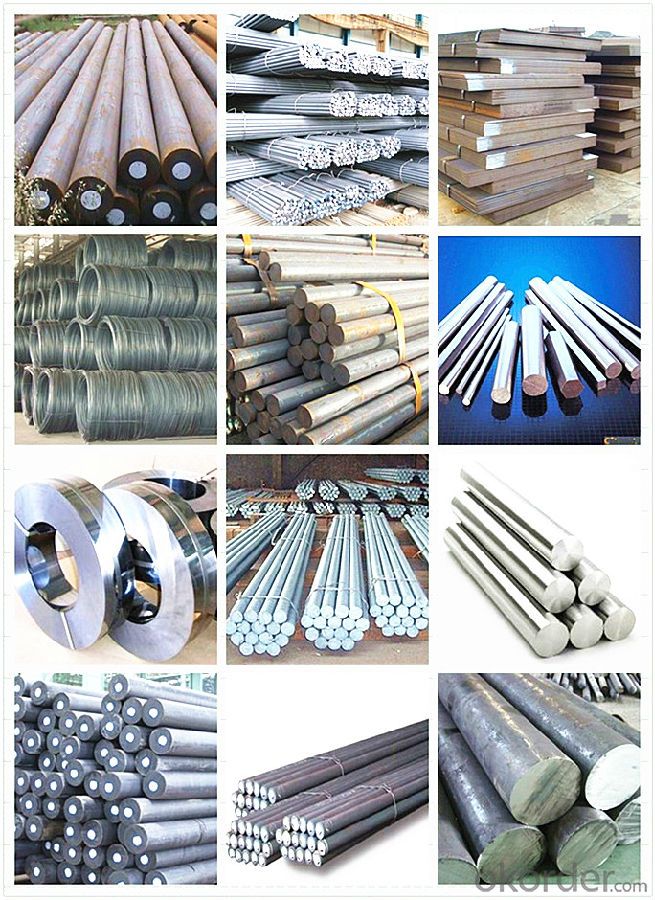
FAQ:
| Are you a trading company or manufacturer? | Manufacturer |
| What’s the MOQ? | 1000m2 |
| What’s your delivery time? | 15-20 days after downpayment received |
| Do you Accept OEM service? | Yes |
| what’s your delivery terms? | FOB/CFR/CIF |
| What's the Payment Terms? | 30% as deposit,70% before shipment by T/T |
| Western Union acceptable for small amount. | |
| L/C acceptable for large amount. | |
| Scrow ,Paybal,Alipay are also ok | |
| Why choose us? | Chose happens because of quality, then price, We can give you both. Additionally, we can also offer professional products inquiry, products knowledge train (for agents), smooth goods delivery, excellent customer solution proposals. |
| What's your available port of Shipment? | Main Port, China |
| What’s your featured services? | Our service formula: good quality+ good price+ good service=customer's trust |
| Where are your Market? | Covering more than 160 countries in the world |
- Q: How does special steel contribute to the marine industry?
- Special steel plays a crucial role in the marine industry by providing superior strength, durability, and corrosion resistance, which are essential qualities for various marine applications. One significant contribution of special steel to the marine industry is in the construction of ships and submarines. These vessels are subjected to harsh environmental conditions, including exposure to saltwater, extreme temperatures, and high pressures. Special steel, such as high-strength low-alloy (HSLA) steel or stainless steel, helps ensure the structural integrity of these vessels and enhances their overall performance. The steel's high strength-to-weight ratio allows for the construction of lighter yet robust hulls, enabling ships and submarines to navigate through rough seas more efficiently. Additionally, special steel is extensively used in marine equipment and components. For example, it is employed in the manufacturing of propeller shafts, rudders, and other critical parts that need to withstand the forces exerted by the water. The corrosion-resistant properties of stainless steel make it ideal for various marine fittings, such as valves, fasteners, and pipes, ensuring longevity and efficient operation in a highly corrosive marine environment. Moreover, special steel finds applications in offshore structures, including oil rigs, platforms, and wind turbines. These structures must withstand harsh conditions like strong ocean currents, heavy waves, and corrosive saltwater. Special steel grades, such as carbon-manganese steel or weathering steel, are specifically designed to provide exceptional strength and resistance against corrosion, making them suitable for offshore installations. Lastly, in the marine industry, special steel is indispensable for the fabrication of marine containers and cargo handling equipment. The steel's high tensile strength and impact resistance allow for safe transportation of goods by sea, ensuring that containers can withstand the dynamic forces during shipping and protect the cargo from water intrusion. Overall, special steel's unique properties make it an indispensable material in the marine industry. Its strength, durability, and corrosion resistance contribute significantly to the construction of ships, submarines, offshore structures, marine equipment, and cargo containers, enabling safe and efficient maritime operations.
- Q: How is special steel used in the production of consumer goods?
- Special steel is used in the production of consumer goods primarily due to its enhanced properties such as strength, durability, and resistance to corrosion. It is commonly utilized in the manufacturing of various products like kitchen appliances, automobiles, power tools, and even jewelry. This type of steel allows for the creation of high-quality, long-lasting consumer goods that can withstand wear and tear, ensuring customer satisfaction and product longevity.
- Q: How does special steel contribute to the strength of products?
- Special steel plays a significant role in enhancing the strength of products in multiple ways. To begin with, engineers design special steel to possess improved mechanical properties, including high tensile strength, toughness, and hardness. These qualities make it particularly suitable for industries such as construction, automotive manufacturing, and aerospace engineering where strength is of utmost importance. Furthermore, special steel can be customized to meet specific requirements, allowing manufacturers to adjust its composition and properties to suit their products. This adaptability guarantees that the steel utilized in different components is optimized for utmost strength, durability, and performance. Additionally, special steel undergoes various heat treatment processes like quenching and tempering, which further bolster its strength. These treatments modify the steel's microstructure, resulting in enhanced hardness and resistance to wear and fatigue. Consequently, products made from special steel can endure heavy loads, harsh environments, and repetitive stress, ensuring their long-term reliability and durability. Moreover, special steel often exhibits remarkable corrosion resistance, making it well-suited for applications exposed to corrosive environments such as the marine or chemical industries. By preventing material degradation, corrosion resistance enhances the overall strength and lifespan of the product. In conclusion, special steel contributes significantly to product strength through its enhanced mechanical properties, customizable composition, heat treatment processes, and corrosion resistance. These factors collectively ensure that products made from special steel can withstand high stress, extreme conditions, and deliver exceptional performance, making them indispensable in various industries.
- Q: How does special steel contribute to improving product reliability in critical applications?
- Special steel contributes to improving product reliability in critical applications by offering enhanced characteristics such as high strength, durability, corrosion resistance, and heat resistance. These properties make special steel ideal for withstanding extreme conditions and heavy loads, ensuring the stability and performance of critical applications. Additionally, special steel alloys can be tailored to specific application requirements, providing a custom solution that meets the unique demands of various industries. This helps to minimize the risk of failures, increase the lifespan of products, and enhance overall reliability, ultimately contributing to the safety and efficiency of critical applications.
- Q: What is the role of carbon in special steel?
- Special steel relies on carbon to significantly impact its properties and performance. This type of steel is specifically engineered to showcase exceptional characteristics like high strength, hardness, wear resistance, and corrosion resistance. Carbon is a key alloying element in special steel, and its content dictates many of these desired properties. To begin, carbon is responsible for enhancing the strength and hardness of special steel. When carbon is introduced into the iron matrix, it forms iron carbides, which are exceptionally hard and provide structural integrity to the steel. The higher the carbon content, the greater the steel's hardness and strength. Consequently, special steel is well-suited for applications that demand high toughness, durability, and resistance to deformation, such as the manufacturing of tools, dies, and industrial machinery components. Additionally, carbon contributes to the wear resistance of special steel. The presence of carbon enhances the steel's ability to withstand abrasion and endure extreme conditions. This is especially important in industries like mining, construction, and oil and gas, where components face intense wear and friction. Moreover, carbon plays a crucial role in determining the machinability and weldability of special steel. The carbon content influences how the steel responds to heat treatment, affecting its ease or difficulty of machining and welding. Striking the right balance of carbon content is essential to ensure that special steel can be easily worked on and fabricated into complex shapes without compromising its properties. Lastly, carbon influences the corrosion resistance of special steel. Although steel is generally susceptible to corrosion, the addition of specific amounts of carbon can enhance its resistance to rusting and other forms of corrosion. This is particularly important in applications where the steel is exposed to harsh environments, such as in the marine or chemical industries. In conclusion, carbon plays a vital role in special steel by enhancing its strength, hardness, wear resistance, machinability, weldability, and corrosion resistance. The precise amount of carbon added to the steel is carefully controlled to achieve the desired properties for specific applications. This versatility and sought-after nature make special steel a highly valued material across various industries.
- Q: What are the different coating techniques used for special steel?
- There are several different coating techniques used for special steel, including electroplating, hot-dip galvanizing, powder coating, and thermal spray coating. Each technique has its own advantages and uses, depending on the desired outcome and the specific properties of the special steel being coated.
- Q: How does special steel perform in terms of machinability?
- Special steel generally has good machinability due to its composition and properties. It is often designed or treated to have improved cutting and machining characteristics, such as increased hardness, toughness, and wear resistance. This allows for efficient and accurate machining operations, resulting in high productivity, better surface finish, and reduced tool wear. However, the machinability of special steel can vary depending on the specific grade, heat treatment, and machining conditions used.
- Q: What are the different methods of surface coating for special steel?
- For special steel, there exists a variety of surface coating methods that can be utilized based on the desired outcome and application. Some of the most frequently employed techniques are as follows: 1. Electroplating: By employing an electric current, a thin layer of metal can be deposited onto the surface of the steel. This process enhances the steel's corrosion resistance, wear resistance, and overall aesthetic appearance. 2. Hot-dip galvanizing: This method entails immersing the steel in molten zinc, resulting in the formation of a protective coating on the surface. Hot-dip galvanizing offers exceptional corrosion protection and can be utilized for both interior and exterior applications. 3. Powder coating: This technique involves the application of a dry powder onto the steel's surface, followed by heating and curing to create a durable and visually appealing coating. Powder coating provides excellent corrosion resistance, impact resistance, and allows for customization of colors. 4. Physical vapor deposition (PVD): PVD is a vacuum coating process where thin layers of metal are deposited onto the steel's surface. This method enhances the steel's hardness, wear resistance, and chemical resistance. It is commonly employed for decorative finishes and to improve the performance of cutting tools. 5. Chemical conversion coating: This method entails treating the steel surface with a chemical solution, which reacts with the surface to form a protective coating. Chemical conversion coatings provide corrosion resistance and can serve as a base for painting or other coatings. 6. Thermal spraying: Thermal spraying involves melting or heating a coating material and projecting it onto the steel surface using a spray gun. This technique can be utilized to apply a wide range of coatings, including metals, ceramics, and polymers. Thermal spraying improves the steel's wear resistance, corrosion resistance, and thermal insulation properties. These examples merely scratch the surface of the available surface coating methods for special steel. The choice of method relies on factors such as desired properties, application requirements, and budget. Consulting with experts in the field is crucial to determine the most suitable coating method for specific steel applications.
- Q: What are the main factors that determine the cost of special steel?
- The main factors that determine the cost of special steel include the raw material costs, production techniques and processes involved, the complexity of the steel's composition, the level of customization required, and market demand and supply dynamics.
- Q: What are the safety considerations when working with special steel?
- When working with special steel, there are several important safety considerations to keep in mind. Firstly, it is crucial to wear appropriate personal protective equipment (PPE) such as safety glasses, gloves, and protective clothing to prevent any potential injury. Special steel may have sharp edges or contain hazardous materials, so precautions should be taken to avoid cuts or exposure to harmful substances. Additionally, special steel may require specific handling techniques due to its weight or complexity. It is important to follow proper lifting and handling procedures to prevent strains or accidents. Furthermore, working with special steel often involves the use of heavy machinery or tools, so operators must be trained and qualified to operate such equipment safely. Another safety consideration is the potential for fire or explosion. Depending on the type of special steel, it may have specific flammability properties, and appropriate fire prevention measures should be implemented. This includes having fire extinguishers readily available and ensuring a safe working environment free from any potential ignition sources. Lastly, proper ventilation is crucial when working with special steel, as certain processes may release harmful fumes or gases. Adequate airflow and ventilation systems should be in place to minimize the risk of respiratory issues or chemical exposure. By considering these safety measures, workers can mitigate potential hazards and create a safer working environment when dealing with special steel.
Send your message to us
TP410 Stainless Steel Bar /TP 410 Stainless Steel Rod
- Loading Port:
- Qingdao
- Payment Terms:
- TT OR LC
- Min Order Qty:
- 5 m.t.
- Supply Capability:
- 100000 m.t./month
OKorder Service Pledge
Quality Product, Order Online Tracking, Timely Delivery
OKorder Financial Service
Credit Rating, Credit Services, Credit Purchasing
Similar products
Hot products
Hot Searches
Related keywords
